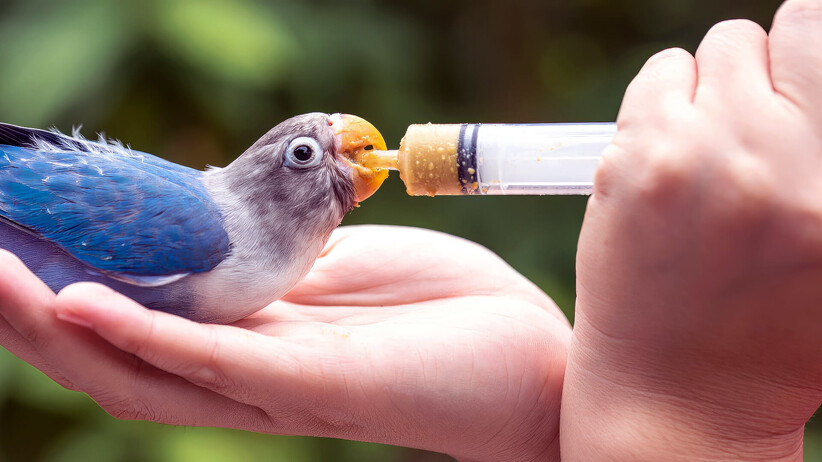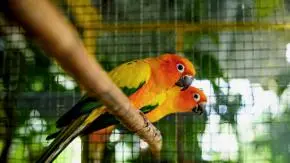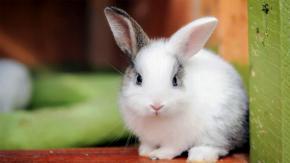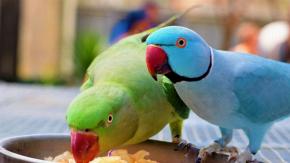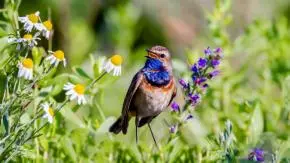It’s in their nature for birds to accompany their flock mates during meals. And for pet birds, humans serve as their closest flock mates.
You may have observed this phenomenon if you have a winged friend, as it is their way of socialising. And on occasion, you may have fed it from your own plate. But did you know that many human foods are toxic to birds?
Some human snack foods should never be offered to your winged friend, as they can harm the bird. And so, it’s important to know which foods can make your pet bird very sick.
Following is a brief list of the most common foods you should never feed your bird. Keep these out of reach from your pet to ensure they remain healthy and happy for a long time.
9 Human Snacks That Are Potentially Toxic To Birds
1. Chocolate
Birds find chocolate irresistible, which may make its inclusion on this list a surprise for you. Chocolates contain theobromine and caffeine, both of which can cause adverse effects on the physiology of your winged friend. Your feathered pet can suffer from vomiting, diarrhoea, hyperactivity, tremors or even seizures, potentially death-causing.
Keeping chocolate-containing foods as far away from your pet bird as possible would be the best action.
2. Certain Fruits
Many fruits like apples are safe for your pet bird to consume in small quantities, but apple seeds and pits are not. Fruit seeds and pits have potentially toxic effects and can induce heart health problems in your winged companion. So, consider removing apple seeds and fruit pits completely before feeding the fruits to your bird.
Of course, this property isn’t universal in fruits, as other fruits, like avocados, can cause respiratory distress or respiratory difficulty and heart issues in your bird. The avocado plant contains a fungicidal toxin that is particularly harmful to small birds like parakeets and cockatiels. Needless to say, avoid feeding avocado-containing foods to your bird.
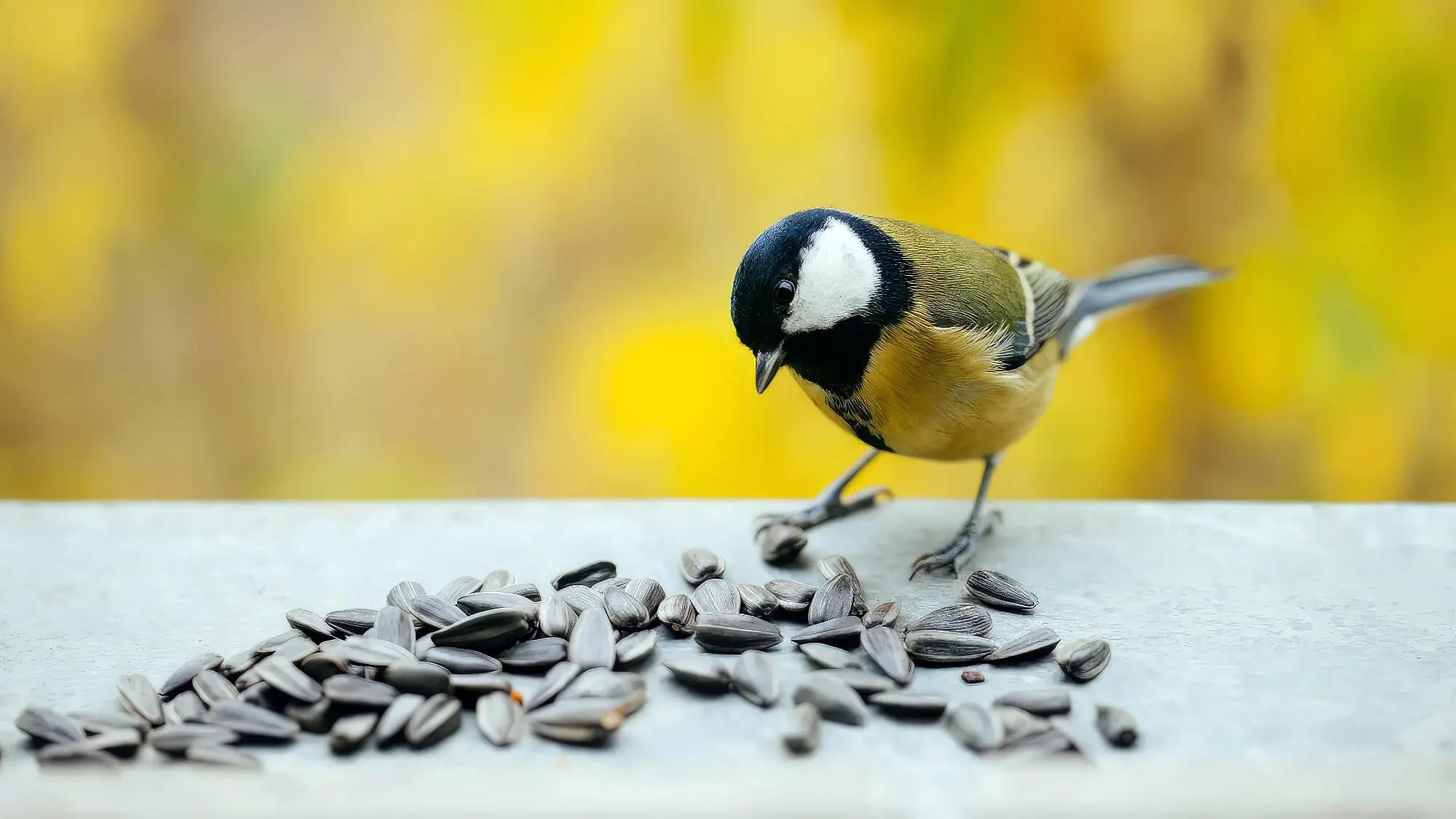
3. Caffeine
Caffeine is a human stimulant, so it is so beloved among us. However, this stimulating property can harm birds, inducing irregular heartbeats, hyperactivity and even cardiac arrests. Even in extremely limited quantities, caffeine can lead to premature and even sudden death in pet birds.
It’s important to remember that your feathered friends don’t need that daily dose of coffee that you may crave. Consider cleaning your coffee mug immediately after use to minimise any risk of your bird consuming any amount of caffeine.
4. Fat
Excessive fat can build up cholesterol in our arteries and cause heart disease and stroke; much of the same happens to birds. Certain bird species are particularly vulnerable to high cholesterol and developing high triglyceride levels, which leads to heart diseases. You should keep high-fat foods away from your Quaker and Amazon parrots to limit their chances of developing such diseases.
The best foods to feed your pet birds as treats are nuts sans salt. Just one unsalted almond or walnut can keep medium-sized birds sated for a whole day, with smaller birds requiring even less. But larger birds like Macaws may need more to fill their stomachs well.
That said, birds may be able to consume extremely small amounts of fat-filled foods occasionally. Well-cooked meat can be such a food item that you may offer your bird only sparsely.
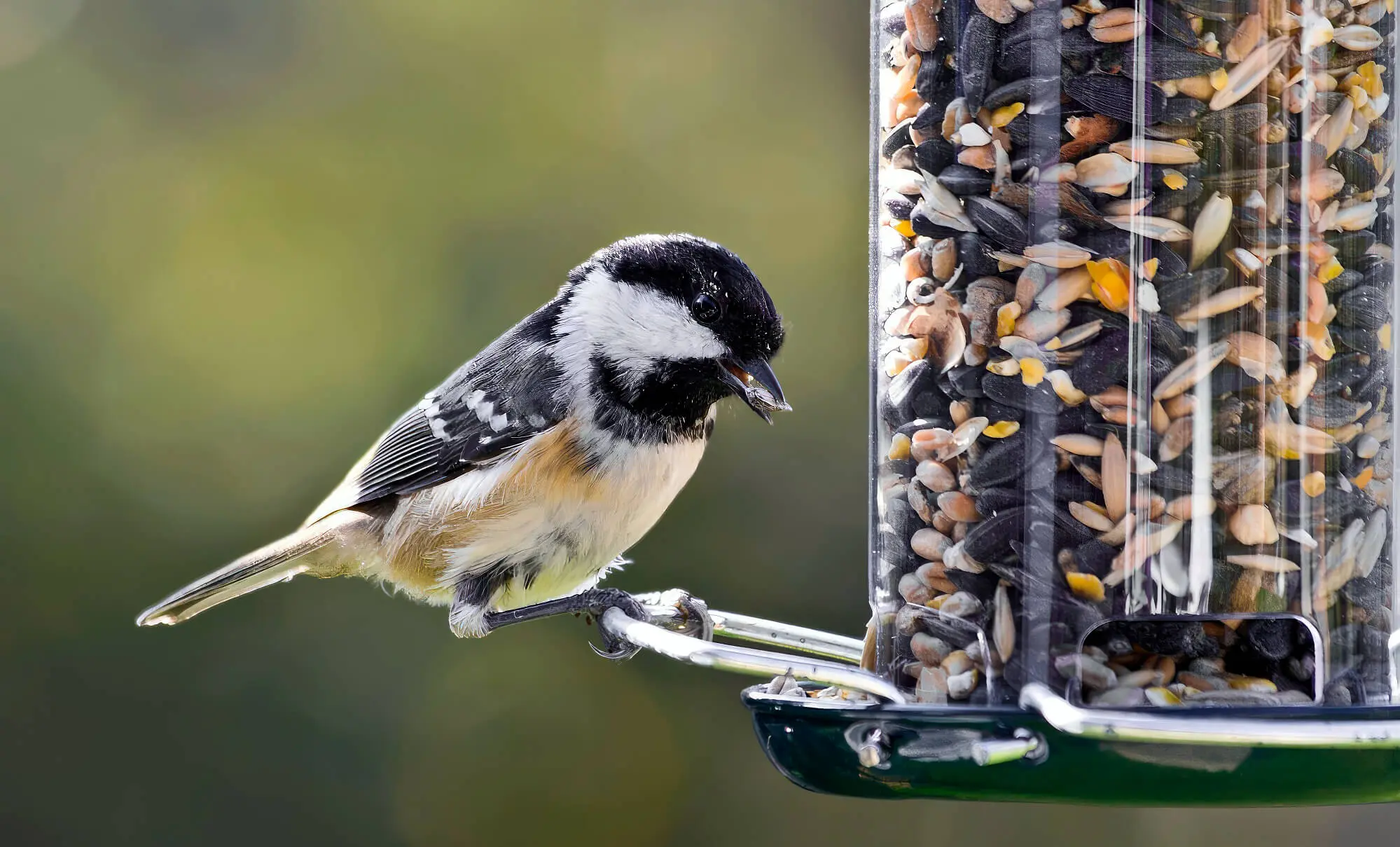
5. Salt
Too much salt can lead to electrolyte and fluid imbalance in pet birds, ultimately resulting in horrible consequences. Dehydration, excessive thirst and renal failure are some of these health problems that can cause them to perish. So, don’t allow them to nibble on your favourite salty chips!
As for snacking treats, unsalted popcorn or pretzel may suffice for their tiny body.
6. Onions And Garlic Or Garlic Powder
Raw or steamed vegetables like green onions and garlic are toxic to other animals, like cats, dogs and birds, due to sulphur compounds in the former and allicin in the latter.
Sulphur compounds can irritate the insides of a bird’s bill, oesophagus or crop, leading to ulcers and all sorts of horrid consequences. Anaemia is the worst of them all, which can potentially be fatal for the bird. Allicin is also a compound that causes anaemia in birds, causing them to grow weak and frail. That means no garlic and onion-flavoured snacks for your pet cockatoo!
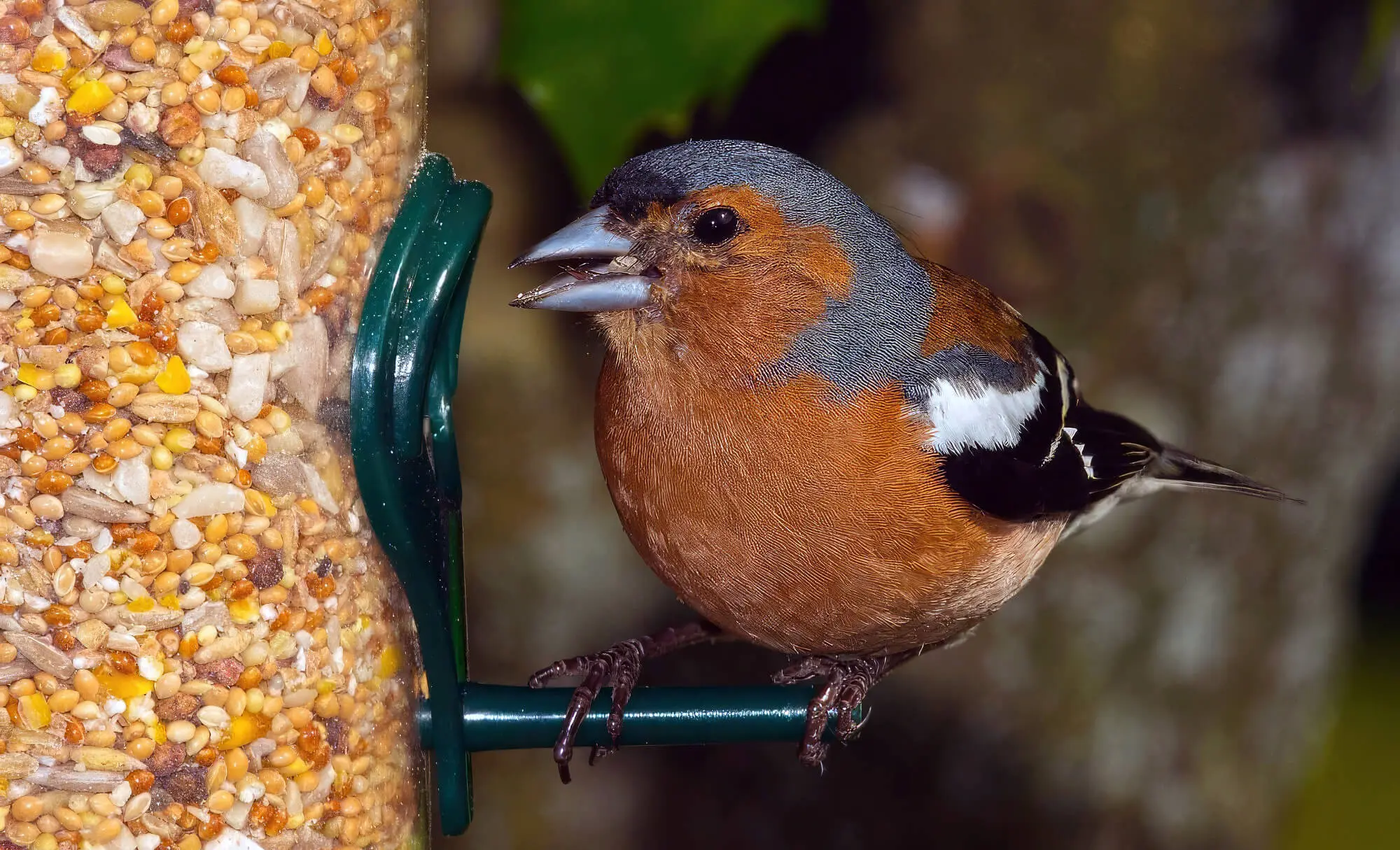
7. Xylitol
Birds are susceptible to toxic compounds due to their faster metabolism. It doesn’t take large amounts of toxins to affect them negatively, and Xylitol may be one such compound.
Xylitol is a common artificial sweetener often used in sugarless gums and many diet foods. It isn’t fully known how it affects birds, but the compound is also fatal for other pets. And considering how sensitive birds are to such chemicals, it’s safe to assume that Xylitol may be fatal for them.
8. Uncooked Or Dried Beans
Uncooked beans pose two threats to birds: a toxin and a choking hazard. Raw beans, such as red and white kidney beans, contain a toxin called phytohemagglutinin that can induce skin swelling in birds. And due to their size, these dry beans can easily get stuck in their food canal, causing them to choke.
Cooking beans well eliminates both of these issues, with cooked beans becoming soft enough for them to eat safely.
9. Alcohol And Soda
It’s a poor practice to offer your pets alcohol or soda, which is doubly so for birds. Alcohol and soda can depress the bird’s organs, leading to death. Keep your bottles of wine or soda away from your bird, as even a small sip can end up being fatal.
Additional Tips For Feeding Birds
Captive birds don’t require as much energy to survive as they don’t need to search for food or defend their territory like wild birds. As such, their food requirements are also quite low, owing to the simplified, sheltered lifestyle.
It’s surprisingly easy for a caged bird to become overweight because of over-conditioning. Bird owners often make the mistake of feeding their birds food that is rich in calories and fats. And it doesn’t take long for their weight to reflect it.
Thus, when you adopt a pet bird, consider looking up what is and isn’t good for its species. Feeding your bird a balanced diet is the best way to keep it high in energy and spirit. And be sure to feed your bird a small amount of treats at dinner time. That way, it will feel like a part of the flock.
If your bird’s diet requirements feel confusing, consult avian veterinarians for dietary suggestions.
Feeding Human Food to Birds
Birds have radically different physiology in comparison to humans. A bird’s digestive system works completely differently; naturally, it requires different foods.
As a bird owner, you should remember that the bird should feel at home in your company. Sharing fresh foods with it is a great way to ensure this, although this can also lead to your bird becoming overweight. Feed your bird a well-balanced diet with occasional generally healthy snacks, ensuring that your feathered friend maintains a long, safe and happy life.
You can strengthen the bond with your bird by feeding it Premium Budgie Seed Blend from Planet Pet. We offer a range of pet products, including food, toys and cages for all kinds of pets, providing you with everything your pet needs.

